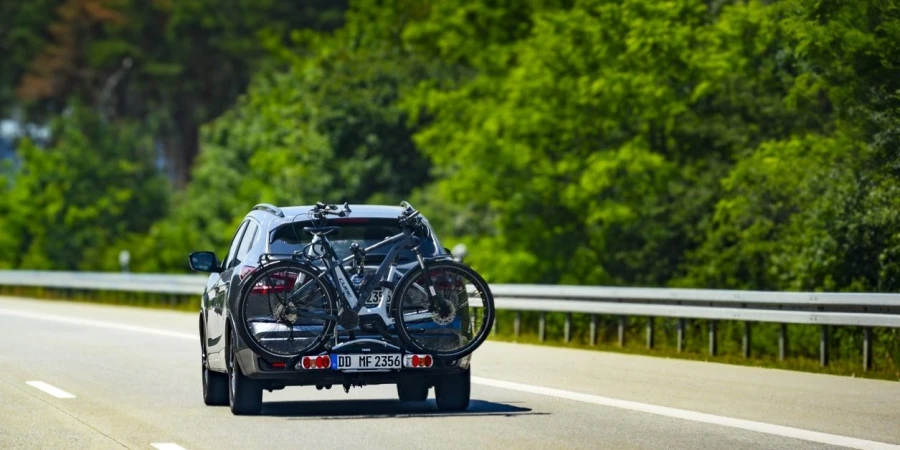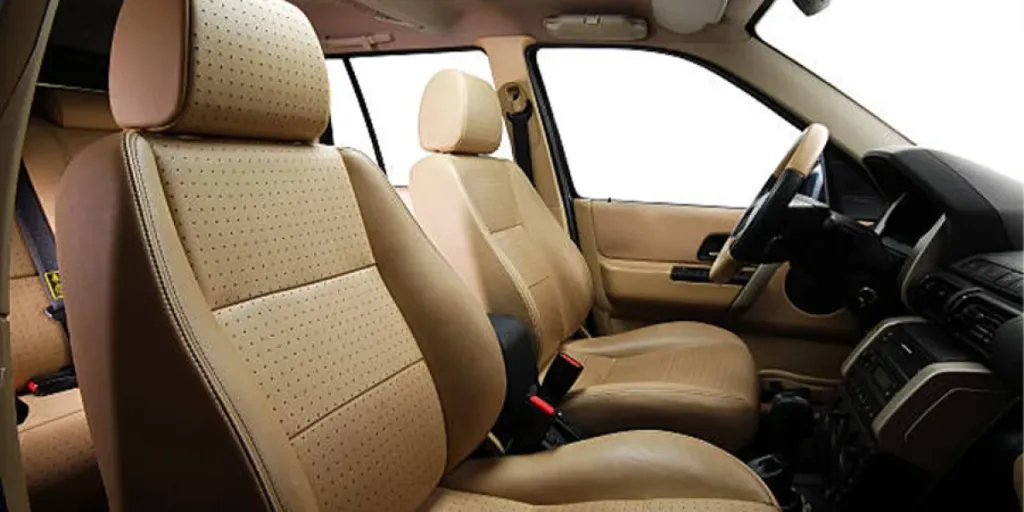Table of Contents
1. Introduction
2. Understanding the main types and usage of hitch cargo carriers
3. Hitch cargo carrier market overview
4. Key factors to consider when choosing a hitch cargo carrier
5. Top hitch cargo carrier models and their features
6. Conclusion
Introduction
Cargo carriers that hook onto a vehicle’s trailer hitch are crucial for maximizing storage capacity and ensuring hassle-free transportation of items without cluttering the car’s interior space. They come in different types, like platforms, folding models, and enclosed boxes, to suit various hauling requirements. They are perfect for carrying everything from camping gear to heavy machinery, providing versatility, durability, and accessibility. Using a hitch cargo carrier is a way for companies to streamline the transportation of goods and improve the capabilities and versatility of their vehicles.
Understanding the main types and usage of hitch cargo carriers
Platform cargo carriers
Platform cargo carriers are flat, open carriers designed for versatility and easy loading. These carriers are ideal for transporting large, irregular items like coolers, camping gear, and even heavy machinery that might not fit within enclosed carriers. Their open-frame design makes them suitable for stacking items securely, allowing flexibility in cargo arrangement. Commonly constructed from steel or aluminum, these carriers can handle substantial weight, with some models supporting up to 500 pounds.
Hitch-mounted cargo boxes
When transporting goods and shielding them from weather elements and theft while traveling, hitch-mounted cargo boxes provide a better solution. These sturdy boxes are usually made of polyethylene, which is similar to the stuff used in white water kayaks. They can endure rough outdoor environments without a hitch. Whether you opt for the 12.5 cubic feet from StowAway or go big with the 16 cubic feet models available today, these cargo boxes are perfect for safeguarding your belongings, such as luggage, electronics, or delicate equipment, secure throughout your journey. The sturdy or movable frames of these containers make reaching the back of the vehicle easier without emptying them. It is a good option for people who travel often or need consistent access to their car.
Folding cargo carriers
Cargo carriers that fold are created to save space efficiently. It can be folded against the vehicle’s back when not in use to save space and decrease air resistance intake. Materials like steel make these carriers and feature side rails for cargo security by stabilizing items during transportation. Some folding models can support up to 500 pounds, making them as robust as their fixed counterparts while providing the added benefit of compact storage.
Specialty carriers
Specialized hitch carriers are tailored to meet specific requirements and provide unique features for specific uses like transporting bikes or fishing gear and even setting up grill stations for tailgate parties. For instance, hitch-mounted racks are designed to hold fishing rods while offering enough room for coolers and tackle boxes. These carriers are commonly attached to swing-away frames that enable easy access to the rear of the vehicle, thus enhancing their flexibility and usefulness.
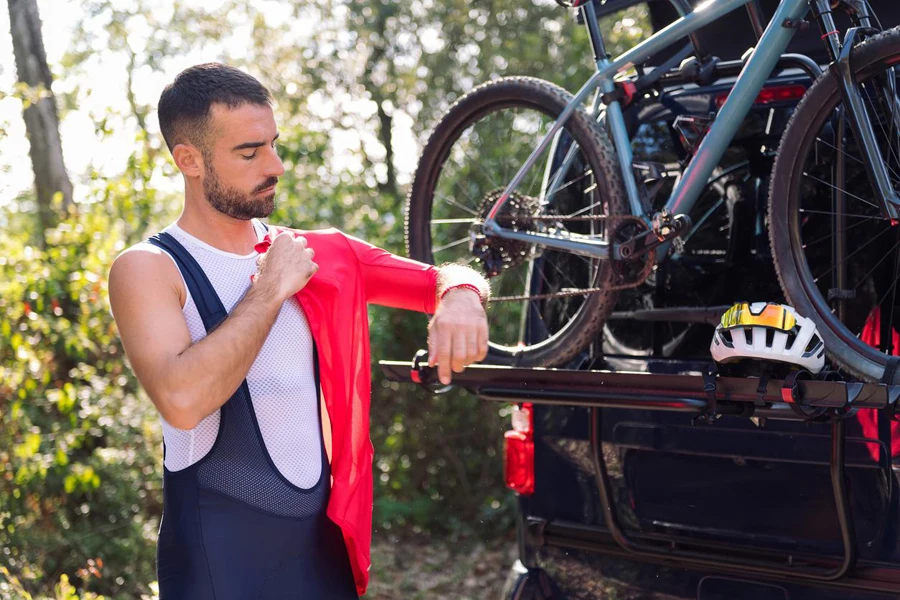
Hitch cargo carrier market overview
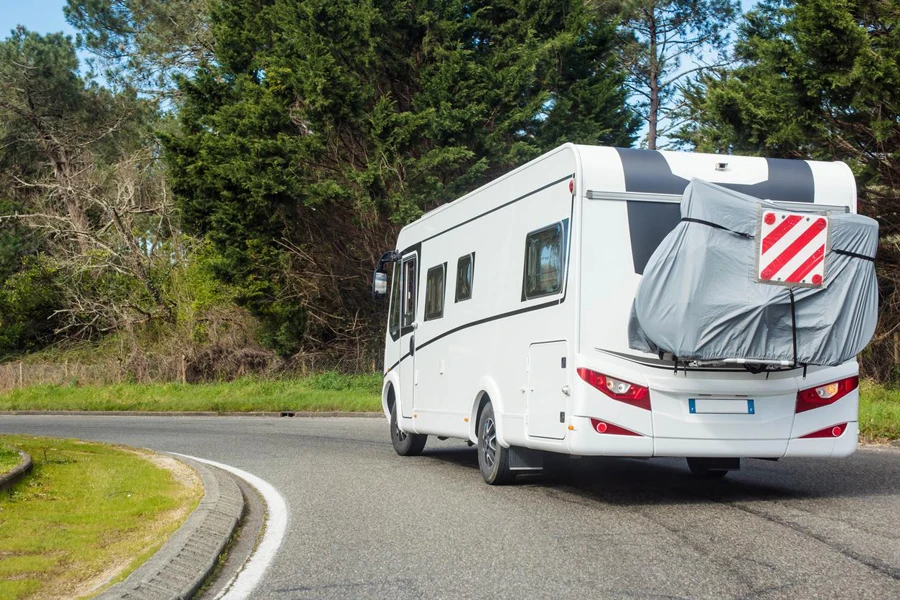
The market for hitch cargo carriers is steadily expanding due to a rising need for vehicle storage solutions in both consumer and commercial settings. Experts estimated the global hitch cargo carrier market to be worth about USD 1.21 billion in 2023 and is forecasted to reach USD 2.5 billion by 2030. This increase is anticipated at a growth rate of around 8.4% from 2024 to 2030. In 2025, we’re moving towards using strong materials like aluminum and advanced polymers valued for their resistance to corrosion and user-friendly handling. Aluminum stays in demand because of its strength-to-weight ratio that boosts performance and fuel efficiency, making it a popular option among consumers. Although steel is commonly employed in heavy-duty scenarios where maximum load capability is vital, it needs extra care to fend off corrosion as compared to alternative materials.
The increasing popularity of vehicles (EVs) has led to a demand for hitch cargo carriers that are compatible with these eco-friendly cars. Manufacturers are now creating carriers that prioritize aerodynamics and lighter weight to meet the requirements of EV owners. This trend paves the way for new ideas in designing cargo carriers customized for EV use. Moreover, there is an uptick in interest from recreational vehicle owners and adventure lovers looking for personalized storage options. The surge in interest in road trips and outdoor ventures has resulted in people opting for carriers such as bike racks, ski carriers, and camping gear organizers.
Key factors to consider when choosing a hitch cargo carrier

Compatibility with vehicle and hitch size
Hitch compatibility is crucial when choosing a hitch cargo carrier for your vehicle. Class III and IV hitch receivers, with two-inch openings, are typically what most carriers are designed for. They are commonly seen in trucks, SUVs, and larger vehicles. It’s important to ensure that the airline aligns with your vehicle’s hitch class to prevent any stability problems and optimize the load it can handle. If your car has a hitch receiver, like 1.25 inches in size, an adapter might be needed to decrease the carrier’s weight limit by as much as half.
Weight capacity and load ratings
Hitch cargo carriers come in various weight capacities. Typically, they support loads ranging from 400 to 600 pounds based on the design and materials. Selecting a carrier that aligns with the weight of your items and your vehicle’s towing limit is essential to avoid safety hazards and prevent any harm to the airline or your vehicle caused by overloading. Sturdy steel carriers are commonly chosen for their ability to handle heavy loads well. They are great for transporting coolers, camping gear, or even small motorcycles.
Material and build quality
The type of material used in the hitch cargo carrier plays a role in its durability and resistance to weather conditions and elements like rust and corrosion. Steel is commonly chosen for its robustness and capacity to support heavy loads; however, regular maintenance is necessary to avoid corrosion issues. On the other hand, aluminum is an option that can withstand weather challenges well without compromising on strength. You can also find high-density plastic carriers; they are lightweight options but may not be as durable as steel or aluminum models.
Accessibility and design features
Having design features such as swing-out or folding capabilities can greatly improve the user-friendliness of a hitch cargo carrier. Swing-away carriers enable the entire unit to pivot from the vehicle, which makes it convenient to access the trunk or rear area without having to unload the cargo. Foldable carriers can be compacted against the car when not in use, which helps save space and improves maneuverability in urban settings. These functions are particularly beneficial for individuals who require access to the rear of their vehicles or those who navigate through tight spaces regularly.
Top hitch cargo carrier models and their features

When considering the best-selling hitch cargo carriers on the market, certain design features consistently make these products popular among buyers. The most favored types typically fall into three categories: platform carriers, basket-style carriers, and folding carriers. Each of these has distinct advantages that cater to specific needs, making them well-suited for a variety of use cases in vehicle transport.
Platform carriers
One of the major types of cargo carriers is the platform style, known for its versatility and simple design. It appeals to a wide range of users looking for an easy-use option for transporting various objects of different sizes and shapes efficiently and securely. One typical aspect of this group is the capability to transform into tray-style holders. This feature provides versatility in effectively organizing and securing cargo types while their simplistic design simplifies cleaning and upkeep tasks. This feature attracts individuals who value practicality more than appeal.
Basket-style carriers
Basket-style carriers are another best-seller due to their elevated side rails, which offer added security for transported items. These carriers are typically made from durable materials like steel or aluminum, ensuring they can withstand harsh weather conditions and heavy use. With weight capacities usually between 500 and 600 pounds, they are designed to carry substantial cargo without compromising stability. High-side rails provide multiple tie-down points, making it easier to secure loads during transport. These features make basket-style carriers a top choice for those frequently hauling gear that requires extra containment, such as sports equipment or bulky luggage.
Folding carriers
Folding cargo carriers have gained popularity in the market primarily because of their space-saving capabilities. These models can be collapsed when not in use, allowing for easier storage and improved vehicle maneuverability, especially in urban settings. Folding carriers often include additional features like anti-wobble mechanisms and reflectors, enhancing both safety and convenience during travel. Despite their compact design, these carriers can still support a weight range similar to non-folding models, generally around 500 pounds. The ability to fold up against the vehicle when empty makes them ideal for users who need a versatile, space-efficient option without sacrificing load capacity.
Conclusion
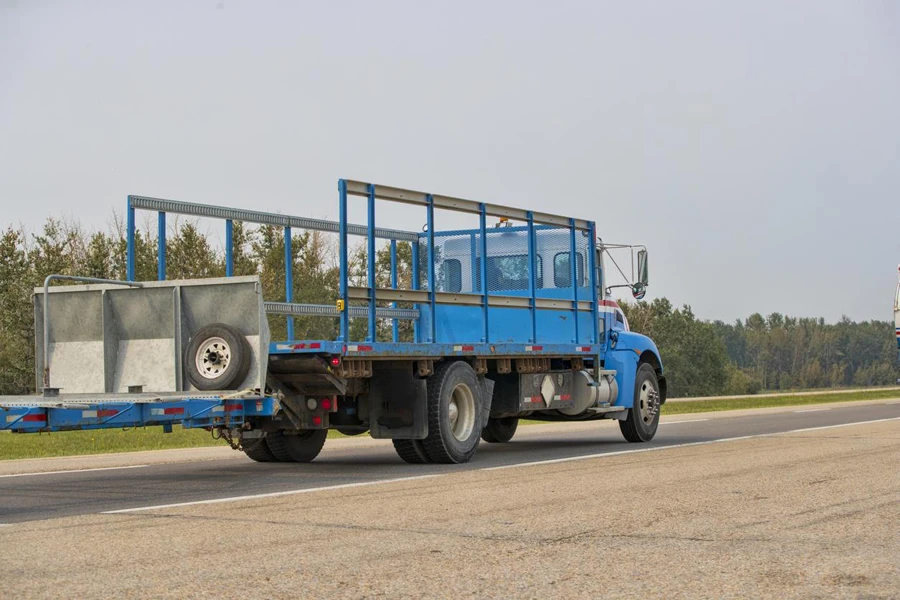
Hitch cargo carriers continue to evolve in 2025, offering versatile solutions for enhancing vehicle storage. Whether opting for the platform, basket-style, or folding carriers, selecting the right features like durability, weight capacity, and ease of use remains crucial. Current trends highlight the importance of adaptable designs and durable materials catering to various transportation needs. By understanding these key factors, business professionals can make informed purchasing decisions that align with market demands and ensure reliable cargo transport for different applications.
